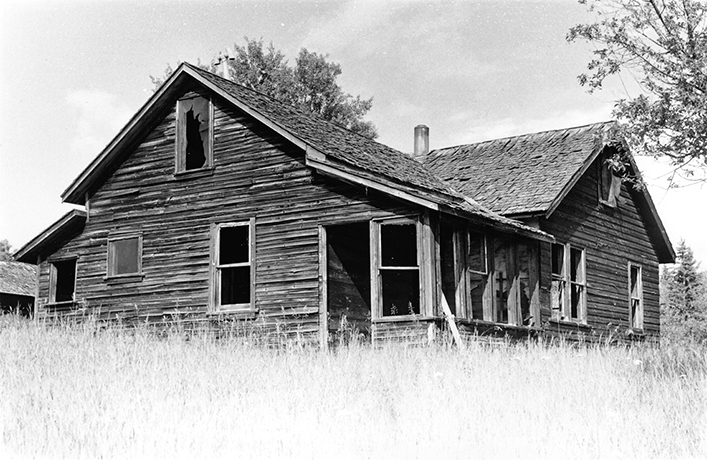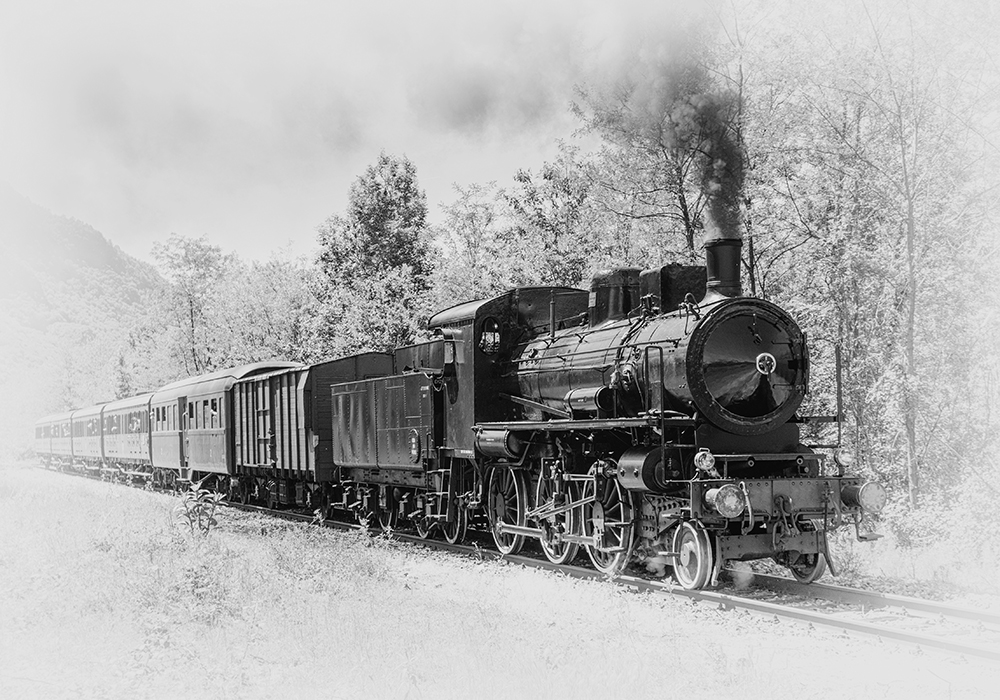The trip seemed like it took forever, but there was the ultimate holiday payoff at the end of the day — Grandma’s house
Christmas is often a time of memories, and for most folks, good memories.
I have some special memories of this special time of year when I was just a young boy, growing up on the family farm a half-mile south of the hamlet of Dapp, Alta., where I still reside. The railroad runs through our home quarter, and we see and hear the trains on what is now the main Canadian National Railway line running northwest from Edmonton to Peace River country.
Our dad, Ivan Dunford, met our mom, Edith Norris, when he came to saw a carload of firewood for her parents, who lived just west of Kilsyth, Alta., on their homestead.
Read Also

Canadian Food Inspection Agency extends chronic wasting disease control program consultation deadline
Date extended for consultation period of changes to CWD program
Kilsyth never became more than just a small station, maybe 12-by-16 feet, a side-track, and a house for the section foreman and family, and a bunkhouse for his section men. It was just a flag stop, and in the days of passenger service on what was then the Northern Alberta Railway (NAR), it meant the engineer had to be signalled either by the conductor on the passenger train with two short pulls on the emergency cord, or from someone using a lantern at Kilysyth, who was waiting to catch the train. The engineer acknowledged his receipt of the signal with two short blasts on the engine’s whistle.
After Mom and Dad were married in late 1936, they moved north to where dad and my Uncle Dick Dunford had adjoining homesteads northeast of Flatbush, Alta., almost 10 kilometres away from Kilsyth.

For the first few years, they lived in my uncle’s home, larger than Dad’s bachelor shack.
Uncle had given up the idea of farming and he and his family had moved further north on the rail line to Chisholm, where he had obtained employment with the Chisholm sawmills.
In 1941, Dad got a job as a section hand on the NAR. By this time, my two older brothers were part of the family. When I came along in 1943, and my eldest brother already school age, our parents made the decision to move to a place closer to a school.
Dad “bid out” and got the job as a section hand at Dapp. He loved farming, and was able to buy a quarter section of land south of Dapp that had been owned by the section foreman, and the family moved to the farm into a snug log home. After our sister came along in 1946, a larger two-storey frame home was built in 1948 to provide more room for the family of six.
At Kilsyth, Mom’s parents, two bachelor brothers and a spinster sister bought and moved to Mom’s homestead quarter, because it was much larger than the older log home they had at what we termed the “river place” just west of Kilsyth (the Pembina River is at the west side of that farm).
Because Dad worked on the railway, he was able to get passes for members of the family to ride the passenger train at no charge. You might call it free, but section work was all hand labour back then, so the passes were well-earned, I feel.

My very special Christmas memories came during the Christmas break time. Shortly after Christmas day — I don’t recall exactly when — the Dunford kids would catch the northbound passenger train, which came through Dapp around 8 p.m. every evening.
Dapp is mile 65.9 on the line. Mile zero was Dunvegan Yards, which was just outside of Edmonton at the time, but now well within the city limits. We would board the train full of excitement and anticipation, for we were going to Grandma’s house.
Although Kilsyth is a scant 21.2 miles north, it seemed to take forever to get there. The train would stop at Jarvie, where the steam engine took on more water, and then at Fawcett. There would be mail to deliver, often some freight and perhaps some passengers.
Eventually, we were on the move again, with the next stop, Kilsyth, and we watched the conductor pull the cord, and listened for the engineer’s reply signal.
Finally, we arrived, probably around 9:30 p.m. or so. There, our Uncle Elmer and Uncle George would be waiting for us. Once the train left Kilsyth and headed north again, we crossed the tracks to where the team of horses and the bobsleigh was waiting.
Our way to the sleigh was lit by the dim light of a coal oil lantern, and we eagerly crunched through the snow, our uncles thoughtfully carrying our baggage with clothes we would need over the next few days, and maybe a few gifts our mom had packed in.
We children piled into the big wagon box on the sleigh, and snuggled down under the blankets close to a container of hot rocks, all thoughtfully put there for us by our Auntie Elsie.

Our uncles climbed up onto the wooden seat and the lantern was hung at the front, and away we went. The light was of no use to the horses, but it didn’t matter because there was only one trail, and they well knew the way.
It was like magic. I can still hear the swish of the sleigh in the snow, the lantern swaying slightly as we moved along, and the jingle of the harness chains hooked to the eveners attached to the sleigh. The small light cast shadows on the big spruce, tamarack and pine trees as we went around the several curves on the high sand ridges on the trip to the Norris Trail’s End farm. It all added to that special magical time.
When we topped the final rise, the road opened up onto a pasture and below we could make out the glow of the light coming from Grandma’s house.
When the team pulled up at the gate to the yard, we jumped off and left our uncles, probably without so much as a thank you, and dashed for the house, while they unhitched the team, unharnessed them and put them back into the comfort of the barn.
It was late at night by this time, but Grandma was always there, sitting in her big rocking chair, fairly close to the big old oil drum heater. The light from the coal oil lamp added a special touch of more magic.
We didn’t hesitate when Grandma said, “come give Grandma a hug.” Soon, it was off to bed, and we boys had to climb a ladder to the “upstairs” to go to bed. Our little sister got to sleep with Auntie, or perhaps Grandma, I don’t remember.
Even though we lived not that far apart, neither had a car, nor a telephone or electricity at that time. Communication as to when we would arrive had to be done by mail well ahead.
Those special days went by quickly. We would listen to Grandma’s stories, string popcorn for the tree, and do other fun things indoors.
Outdoors was a whole different world compared to our home at Dapp too. Where our land is flat, there were some neat hills at Kilsyth to come down on a sled or skis, or play in the loft of the big barn, which we didn’t have at home either.
All too soon, those magic days of Christmas time at Grandma’s house passed, and we had to be up early the next morning to head back down the trail to Kilsyth station once more for the train ride home.
Auntie always had breakfast ready, and even though the hour was early, Grandma would be up to give us a kiss and hug goodbye. Our uncles always made sure we had lots of time to be at the little station house so that we wouldn’t miss the train, which arrived around 6:30 in the morning.
If we were early enough, they would light a fire in the small pot-belly stove to keep us warm.
When they saw the train approaching, one of them would step out to the rail side, and wave the lantern back and forth to signal the engineer, and once seeing it, he would answer back with the regulation two toots. The train pulled up, we climbed aboard, and our Christmas time adventure was over. But those special memories have always remained, now some 70 years ago.
We always called it Grandma’s place, even though our two uncles and aunt lived and did the work on the farm there. Our Grandpa Norris passed away in late 1944, when I was less than two years old, and my Dad’s parents lived in England, and we never did get to meet them, aside from letters and cards and sometimes a small Christmas or birthday gift. So Grandma was the only grandparent we really had.
Yes, those special memories of Christmas time always well up in my heart and mind at this time of year.















